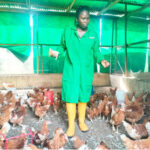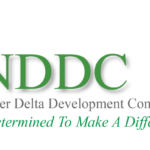The Nigeria Extractive Industries Transparency Initiative (NEITI) said in its Fiscal Allocation and Disbursements Audit (FASD) report that N8.8 trillion was received as allocation from the Federal Accounts Allocation Committee (FAAC) from 2020 to 2021 by the 36 states, including the FCT and 774 local governments.
The report showed that out of the N8.8 trillion, the South South Niger Delta region received the highest allocation of N2.59 trillion, representing 29.53% of the total revenue disbursed to states and local governments.
Under this, Delta received N372.07 billion, followed by Rivers – N298.68 billion and Akwa Ibom – N281.78 billion. And to drive home the point, in the second quarter of 2023, Delta received the largest allocation of N102.79 billion, followed again by Akwa Ibom and Rivers, with N70.01 billion and N69.73 billion, respectively.
In June 2023 alone, Delta received N38,760,299,545.59; Rivers – N27,244,048,122.58; Akwa Ibom – N24,277,567,835.49; Bayelsa – N19,697,476,762.08.
NIGERIA DAILY: We Are Ashamed Because of Huge Debt – Reinstated Kano Workers
23 residents abducted in Abuja community
Again, another data from the 43 monthly reports of the FAAC released by the National Bureau of Statistics (NBS) between June 2019 and December 2022 showed that about N9.3 trillion was shared as federal allocation with Delta State getting the lion’s share of about N843.8 billion, Akwa Ibom – N643.2bn and Rivers – N642 billion. Cross River, though a South South State but not an oil producing state, got the third lowest national allocation with N141.71bn.
Yet, despite the humongous federal allocation of funds, there’s widespread poverty, lack of basic amenities and deficit in development projects. And the distressing figures from the NBS Multidimensional Poverty Index (2022) show that Akwa Ibom has 5.08 million multidimensional poor (71 per cent of its total population of 5.451 million), Rivers – 4.4 million (62.4% of the state’s estimated 7.47 million), Cross River – 3.44 million, constituting 75.6% of the state’s population. Bayelsa State is the most worrying case, as it has a shocking 2.61 million out of the state’s 2.9 million inhabitants living in multidimensional poverty, a staggering 88%.
The only ray of light includes Edo with 1.4 million people in multidimensional poverty (35.4% of its estimated 3.9 million population) while Delta has 2.73 million in poverty (just under 50 per cent of its population.)
Furthermore, in the 2018 data published by the Universal Basic Education Commission (UBEC), Akwa-Ibom comes in second with 581,800 out-of-school children, after Kano’s 989,234. Bayelsa, with its low population but huge allocations, had 53,079. Cross River had 97,919 out-of-school students. And in healthcare, the region has the second highest HIV prevalence in Nigeria, at 5.3%.
While the poverty level is dismal, it becomes more disheartening because the region has been the beneficiary of various assistance programmes including the exclusive 13% derivation revenue for oil-producing states. This is in addition to the development initiatives being implemented through the Ministry of Niger Delta Affairs and Niger Delta Development Commission (NDDC).
There is also assistance from the United States Agency for International Development (USAID), the UK Department for International Development (DFID), the German Agency for International Cooperation (GIZ), the French Development Agency and donor agencies such as the Bill and Melinda Gates Foundation, Ford Foundation, and the Rockefeller Foundation.
It also includes the multinational initiatives from Shell, Chevron, ExxonMobil, and Total, being implemented as part of their Corporate Social Responsibility (CSR).
Despite this substantial financial and development support, infrastructural deficits and poverty still persist and is worsening. And it is always easy for the leaders to blame the federal government for the state of affairs. But the time is past.
It is time for action. Niger Delta Governors should realise that with the huge federal allocations and other funds accruing to the region, they should sit down, prioritise and diligently apply their resources for genuine development towards making their area Nigeria’s beautiful jewel it is meant to be. Already, the region enjoys goodwill, both national and international. What it has lacked is the political will to lead its own development objectives. It is time to stop the trajectory of delivering very little with huge resources.
For a start, we at Daily Trust are calling on the citizens to shun handouts from their leaders and instead demand sustainable development. We also call on the normal rubber stamp legislatures to sit up. Also, federal agencies like ICPC and EFCC must wade in and help in ensuring transparency and accountability in the usage of allocated funds. Moreover, stakeholders especially the media, civil society groups, traditional and religious leaders should live up to their watchdog roles and help hold government at all levels accountable, by getting interested in the budgeting and implementation processes.
Most importantly, Daily Trust calls on Niger Delta governors to address the root cause of their underdevelopment and poverty – deficit of good governance. Blaming the federal government for their failures is sounding hollow these days. All inhabitants and stakeholders must demand a change on how their public institutions conduct public affairs and manage public resources, away from abuse and corruption. This is the time. There must be provision of sustainability development goals through access to quality education and healthcare, and economic opportunities.
It is time states of the region embrace targeted development programmes directed at specific needs. They should know that strengthening good governance would help reduce the insecurity and rule of guns and concurrently lead to stronger enforcement of environmental laws and regulations, thus engendering economic opportunities for their people. Enough of squandering of riches.
Enough with squandering of oil riches.

 Join Daily Trust WhatsApp Community For Quick Access To News and Happenings Around You.
Join Daily Trust WhatsApp Community For Quick Access To News and Happenings Around You.


